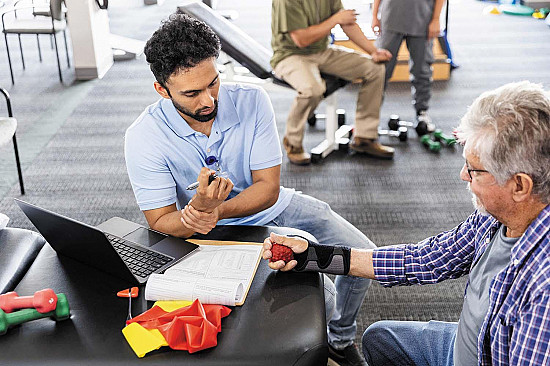5 weight training tips for people with arthritis

Strength training is good for just about everyone. It's especially beneficial for people with arthritis. When properly done as part of a larger exercise program, strength training helps them support and protect joints, not to mention ease pain, stiffness, and possibly swelling. Yet, the thought of starting a weight training program can be daunting to many arthritis sufferers.
If you have arthritis and want to incorporate strength training into your health routine, these tips can help you get started.
- Work with a physiatrist, physical therapist, or certified personal trainer who has experience working with people who have arthritis to design and adapt exercises that will work for you. Your goal should be to include strength training, flexibility activities that enhance range of motion, and aerobic activities that avoid further stress on joints (such as water exercise or the use of elliptical machines).
- Schedule workouts for times of the day when you are least likely to suffer from inflammation and pain. Avoid exercising when stiffness is at its worst.
- Warm up before beginning a strength training session. Walk for a few minutes, while you slowly move and bend your arms into different positions.
- If you have rheumatoid arthritis, balance rest and exercise carefully. Generally, you should avoid doing strength training with actively inflamed joints, at least until the inflammation eases. In some cases, water workouts may be a better choice than strength training.
- Exercise within a comfortable range of motion. If an exercise or movement causes significant pain, stop doing it! Discuss your options with a trainer or physical therapist.
For more weight training tips, check out Strength and Power Training for Older Adults, a Special Health Report from Harvard Medical School.
Image: Ridofranz/Getty Images
Disclaimer:
As a service to our readers, Harvard Health Publishing provides access to our library of archived content. Please note the date of last review or update on all articles.
No content on this site, regardless of date, should ever be used as a substitute for direct medical advice from your doctor or other qualified clinician.















